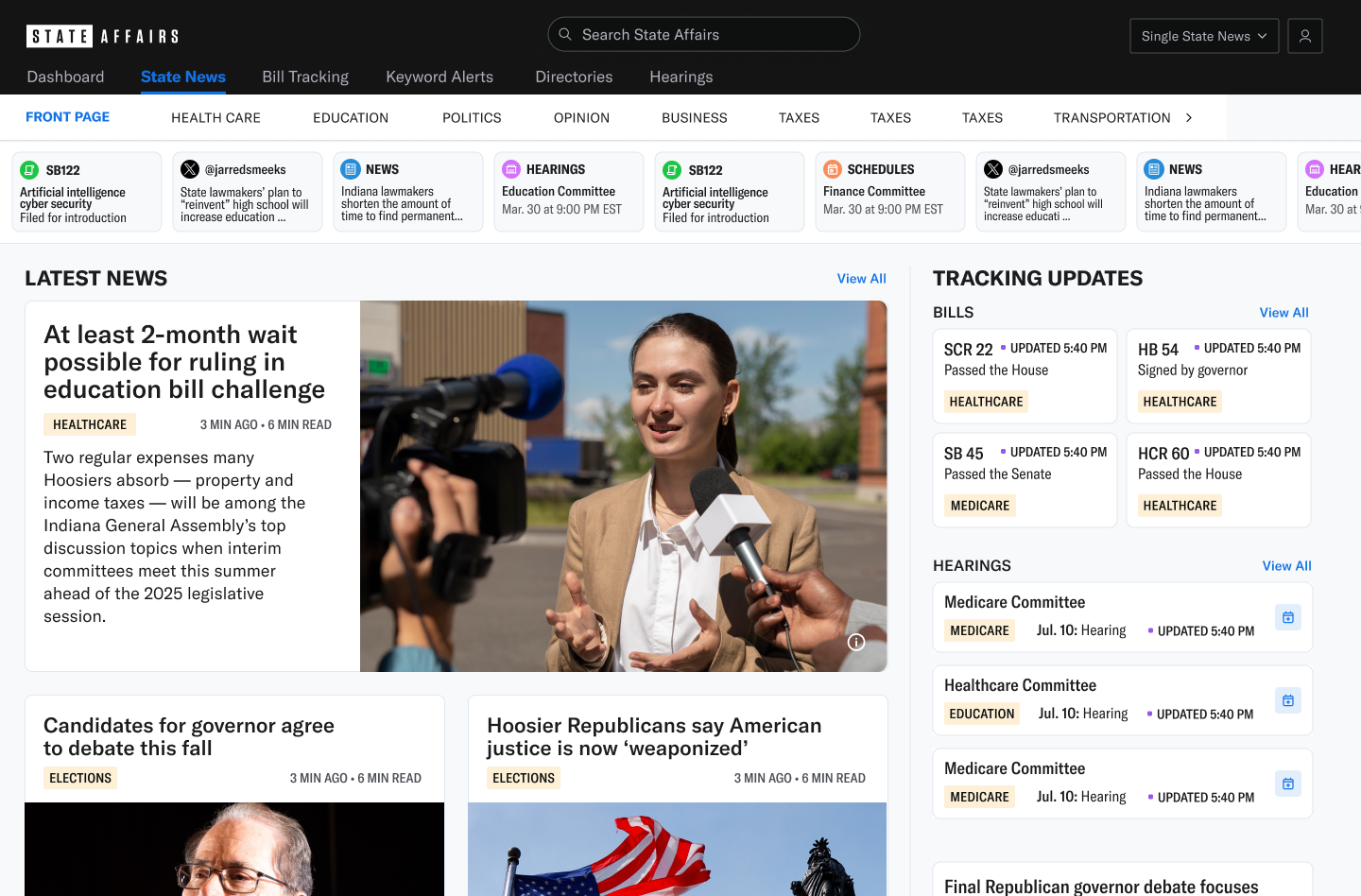State news and AI-powered policy intelligence—personalized, nonpartisan, on-the-ground, and built for those who act first.








Trusted by thousands of organizations across the United States






























%201.png)












%201.png)












Original nonpartisan reporting. Nationwide reach. Unmatched legislative depth.




Our Local, Nonpartisan Statehouse News Brands




























See how our AI-tuned tools help individuals, teams, and organizations stay ahead of policy change.









